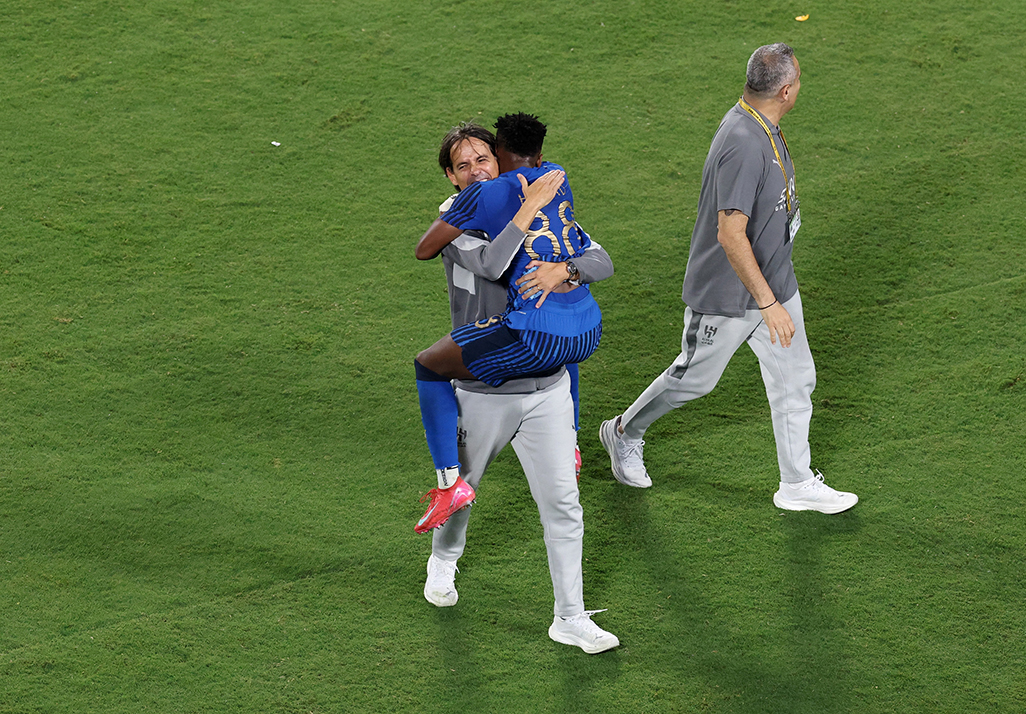The expanded FIFA Club World Cup is proving to be a stage for managerial fresh starts, with three of the eight quarter-finalists led by coaches appointed just weeks before the tournament – and all three have already stamped their authority on their new teams.
Arguably none has made a bigger splash than Simone Inzaghi, who delivered one of the tournament’s biggest shocks when his Al Hilal side stunned Pep Guardiola’s Manchester City 4-3 in a breathtaking extra-time thriller.
The 49-year-old Italian, who left Inter Milan after their Champions League final defeat to Paris Saint-Germain just five weeks ago, got sweet revenge on Monday against the Premier League giants who had beaten his Nerazzurri in the 2023 Champions League final.
Inzaghi took the win by playing steady, rock-solid defence and exploring the speed of his forwards up-front with long balls that exploited their opponent’s aggressive, high-positioned defensive line.
Malcom and Marcos Leonardo were a constant menace on the counter-attack throughout the match, while his defenders managed to slow down City’s star-powered attack for most of the game.
And when they were threatened, Moroccan goalkeeper Bono worked his magic with a string of world-class saves to frustrate their opponents and keep the Saudis in the game.
Al Hilal’s reward is a quarter-final clash with tournament underdogs Fluminense, who defied the Opta supercomputer’s odds of just 0.05% to win the title and stunned Champions League runners-up Inter Milan 2-0 to reach the last eight.
Initially tipped to exit in the group stage, the Brazilian side’s remarkable run continues under Renato Gaucho, a former Fluminense striker and club legend who took charge three months ago. Renato has transformed a team that narrowly avoided relegation in 2024 into genuine contenders, with Colombian winger Jhon Arias emerging as a potential tournament MVP.
Against Inter, Fluminense showed the grit and determination that have defined their campaign with a remarkable Arias and striker German Cano once again making the difference.
Real Madrid complete the trio of new-manager success stories, with Xabi Alonso arriving a month ago to replace Carlo Ancelotti after a rare trophy-less season that included four consecutive defeats to Barcelona, including a humiliating 4-0 Clasico thrashing at the Bernabeu.
Arriving with a reputation for innovative tactics following his trophy-laden stint at Bayer Leverkusen, Alonso has started using a five-man defence, marking a significant departure from the traditional 4-3-3 formation used by predecessors Ancelotti and Zinedine Zidane over the past decade.
The change evoked memories of Vicente del Bosque’s 2000 Champions League-winning side, the last Real Madrid team to adopt such a structure, as Real prepare to face Borussia Dortmund on Saturday off the back of three consecutive wins.
As the tournament progresses, the early success of these new managerial appointments suggests that fresh ideas and bold decisions can reshape even the most storied teams.






Click here to change your cookie preferences